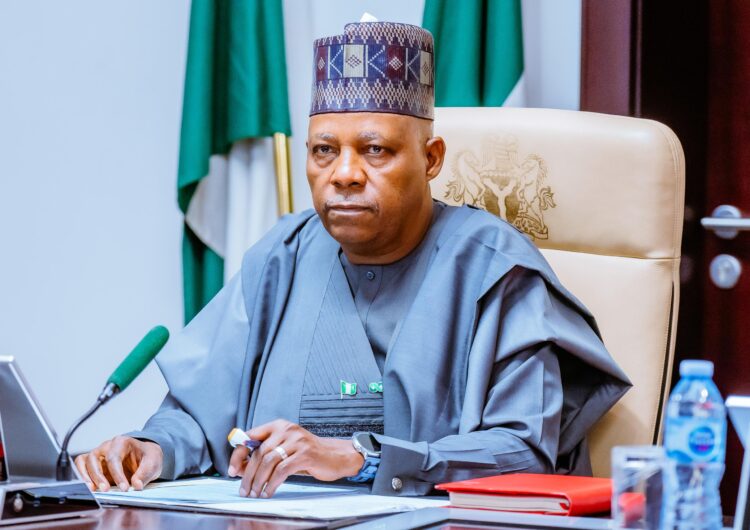Vice President Kashim Shettima has described the 650,000-barrel-per-day Dangote Petroleum Refinery as a national asset crucial to Nigeria’s economic future, urging all stakeholders to support its operations.
Speaking at the 31st Nigerian Economic Summit in Abuja on Monday, Shettima condemned the recent industrial action by the Petroleum and Natural Gas Senior Staff Association of Nigeria (PENGASSAN), saying it was wrong to “hold the nation to ransom” over what he called a minor labour dispute.
The Dangote Group suspended the strike that began on September 28 after agreeing to reinstate the dismissed Nigerian workers.
Shettima, however, criticised the move, warning that such disruptions could damage investor confidence. “Aliko Dangote is not just an individual; he is an institution—a leading light in Nigeria’s economic space,” he said. “If he had invested his $10 billion in Microsoft or Amazon, he could be worth up to $80 billion today. But he chose to invest in Nigeria, and we owe it to future generations to protect and promote such efforts.”
He called for “caution, retrospection, and patriotism” from both labour unions and the private sector, stressing that national interest must take precedence over individual or group grievances. “Nigeria is greater than PENGASSAN and greater than any one of us,” he said.
The vice president clarified that his comments were not partisan but driven by a sense of duty to safeguard Nigeria’s economic stability. He also urged the Nigerian Economic Summit Group (NESG) to propose solutions that would enhance industrial harmony and support major investments like the Dangote Refinery.
According to Shettima, the refinery’s financing involves a blend of equity investments, debt financing, and local and foreign loans, making its success vital to the nation’s financial health. “We cannot hold the entire country hostage over issues that can be resolved through dialogue,” he added.
Shettima noted that his position aligns with President Bola Tinubu’s commitment to fostering economic growth through collaboration between labour and industry.
Meanwhile, the Nigerian National Petroleum Company (NNPC) Limited warned that the recent strike had caused projected revenue losses due to deferred production, missed liftings, and reduced gas sales. NNPC Group Chief Executive Officer, Bayo Ojulari, also linked the recent surge in liquefied petroleum gas (LPG) prices to the disruption caused by the industrial action.












